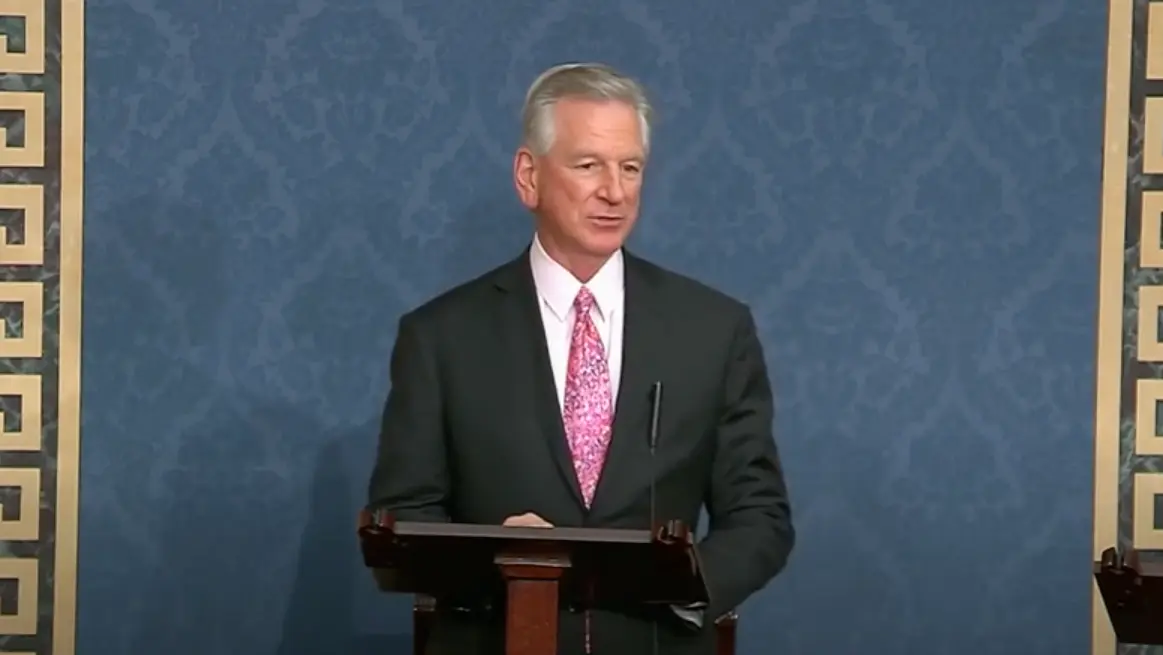|
Getting your Trinity Audio player ready...
|
On Tuesday, Republican Senators on the U.S. Senate Committee on Agriculture, Nutrition, and Forestry released their framework for the Farm Bill. The Farm Bill is a bundle of legislation typically passed every 5 years which covers regulations and subsidies for American agriculture, as well as the Supplemental Nutrition Assistance Program (or SNAP).
One of twenty-three members of the Committee on Agriculture, Nutrition, and Forestry, Alabama Senator Tommy Tuberville released a statement yesterday wholeheartedly supporting the framework.
He said that American farmers “need a Farm Bill that will help them shoulder the immense burden of feeding, fueling, and clothing our country—not a woke laundry list of burdensome climate regulations. Unlike the $1.5-trillion-dollar-giveaway from Senate Democrats, the Republican Farm Bill framework actually puts farmers first.”
Tuberville also compared the Senate Farm Bill framework to the proposed Farm Bill in the House, which he said “passed out of the House AG Committee with bipartisan support.”
However, as APR reported in May, House Republicans’ proposal faced significant backlash from Democrats for its forecasted impacts on SNAP. While four Democrats did join the Republican majority in passing it out of the House committee, most were harshly critical of the bill.
The proposed Farm Bill in the House would cut SNAP by an estimated $30 billion over the next ten years by preventing the Department of Agriculture from updating the Thrifty Food Plan. The cost of the Thrifty Food Plan is used to set the value of SNAP benefits and without the most recent adjustment, SNAP benefits would be only $4.80 per person per day instead of $6.20.
The Senate Republicans’ summary states that their “framework ensures not one SNAP participant will see a single benefit cut. Program benefits will continue to adjust annually for inflation. Anyone who is currently eligible for the program will remain eligible.”
However, the framework states that the Republican Farm Bill will also require “future Thrifty Food Plan updates to be cost neutral,” which is the provision expected to reduce total SNAP funding over the next decade.
The Republican framework has also been criticized for how it would affect animal welfare and climate change.
In an email to its mailing list, the Humane League, an organization founded to stop animal abuse, said that Senate Republicans “want to wipe out the only laws guarding animals from extreme confinement.”
The comment seems to refer to a section of the Republican framework which says a Republican Farm Bill would protect “the ability of livestock producers to raise and sell products into interstate commerce without interference from other states.” This language is very similar to the phrasing used in bills introduced by Republicans in the past which would severely restrict states’ ability to regulate animal welfare.
These bills were reactions to the potential effects of California ballot initiative Initiative 12. Initiative 12 passed in 2018 with over 60 percent support, but was caught up in ongoing litigation and only just found to be constitutional by the Supreme Court in a 5-4 ruling in May 2023.
When it fully goes into effect, Initiative 12 will create minimum space requirements for calves raised for veal, breeding pigs, and egg-laying hens. The sale of any products from animals raised in conditions which don’t meet those requirements will be banned in California.
Because California residents are a large fraction of the domestic food market, farmers from outside of California say in practice they will also be required to obey the Initiative 12 regulations. Critics of Initiative 12 have also claimed that having to keep animals in more humane conditions would hurt family farms.
The language in the Republican framework suggests their Farm Bill would forbid states from creating minimum living conditions for animals raised for interstate sale like California has done.
The environmental organization Sierra Club also said in a press release that the Republican framework would have significant negative impacts on the climate. They stated that the framework if enacted would “[weaken] climate investments [and cut] bedrock environmental laws to expedite logging projects.”
Back in May, Tuberville criticized Senate Democrats’ proposed Farm Bill for “[prioritizing] spending on nutrition and conservation instead of farm programs.” He has also repeatedly criticized Democrats for tying conservation funding to climate change mitigation.
In his statement supporting the Republican framework, he described the Democratic proposal as a “woke laundry list of burdensome climate regulations.”
Accordingly, the Senate Republican framework matches the Republican House bill by making the remaining funding for conservation programs established by the Inflation Reduction Act available for general conservation projects. The conservation funding authorized by the IRA is presently mostly dedicated to reducing greenhouse gas emissions.
According to the framework’s primary sponsor, Senator John Boozman, R-Arkansas, Senate Republicans will not release the text of their full Farm Bill alongside their framework.
Going forward, unless any Senate Democrats support the Republican framework, which is unlikely, the Democratic majority in the Senate and the Republican majority in the House will need to seek a compromise in order to pass a Farm Bill.
Tuberville has said he hopes the support of four House Democrats for the Republican Farm Bill in the House committee will “spark the Senate AG Committee to take action.”
















































